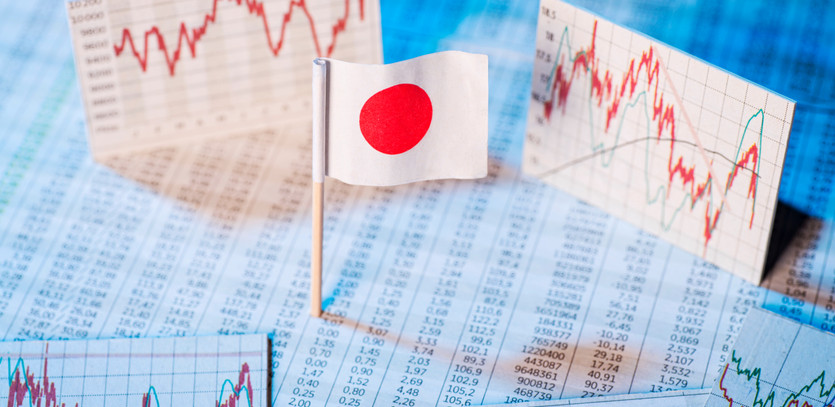A Detailed Examination of Japan's Economic Trajectory
Japan's journey on the economic landscape has been punctuated with bouts of deflation, stagnation, and periods of tepid growth, notably the infamous "lost decade." Nonetheless, the nation has continually held its ground as a vital cog in the global economic machinery. The ascension of Prime Minister Shinzo Abe to power stirred hopes for a possible economic resurgence, although the speed of recovery has been slower than anticipated by some observers.
Despite the hurdles, Japan's economy is on the cusp of several promising catalysts that could catalyze significant growth in the coming years. As we journey further into this narrative, we unfold three persuasive reasons that demonstrate why Japan deserves earnest consideration as an investment hotspot in the years to come.
Key Reflections to Remember
- The amplified strength of the U.S. dollar against the yen, along with the implementation of "Abenomics," has acted as a tailwind for Japan's economic expansion.
- Japan, a stalwart in the robotics and technology sphere, is currently grappling with its large tech firms losing their stronghold in the market.
- Keeping a vigilant eye on Japan's fiscal and monetary policies, in addition to closely tracking its economic health, will be pivotal for spotting signs of recovery in the coming years.
Influence of Federal Reserve Rate Hikes on Japan's Economic Fabric
November 2016 marked a pivotal moment in global economics, as the surprise election of Donald Trump triggered a rally in the U.S. dollar's value, resulting in a consequent dip in the yen's strength. This tumult in currency dynamics breathed life into the Japanese stock market, enabling it to outpace numerous developed nations in the weeks trailing the election. However, with the dollar's performance leveling off between January and late-May 2017, Japanese stocks fell behind their U.S. counterparts.
The Federal Reserve, buoyed by strong employment figures and sustained economic growth throughout 2016 and 2017 (aside from a minor stumble in Q1 2017), signaled its commitment to continue hiking interest rates. This contrasts sharply with the Bank of Japan, which is likely to maintain low interest rates, even if it means exceeding its 2% inflation target. The goal here is to acclimatize consumers to higher prices following years of persistent deflation. These contrasting monetary policy trends could be a boon for Japanese equities in the forthcoming years.
A weaker yen grants Japanese exporters a competitive advantage on the international stage, particularly in U.S. markets, thereby augmenting corporate profits. To maximize the advantages arising from these currency dynamics, international investors are advised to leverage currency-hedged funds. These funds help offset the impact of a weaker yen upon conversion back into dollars. A prominent example is the iShares Japan Currency-Hedged ETF (HEWJ).
Abenomics: A Slow but Steady March Towards Economic Revival
Shinzo Abe's economic policies, popularly known as "Abenomics," lay down a clear roadmap: to resuscitate the Japanese economy from a prolonged phase of sluggish growth. This strategy, built on the pillars of monetary easing, fiscal stimulus, and structural reforms, is gradually making headway into revamping the economic landscape.
By 2014, the influence of these policies started becoming evident, as Japanese inflation surged beyond 3%. Yet, it receded below 0% by 2016, highlighting the inherent volatility associated with executing such comprehensive reforms. 2017 ushered in another shift, with the inflation rate creeping back up to around 0.2%. This was in response to the central bank's decision to establish yield curve control as a fundamental part of its new policy framework. The strategy involved buying 10-year government bonds to maintain yields at 0% while letting go of its official target for monetary base expansion.
Higher inflation prospects could galvanize both the Japanese stock market and the wider economy, attracting international investors. It's crucial for investors to keep their fingers on the pulse of inflation rates and monitor the progression of Abenomics' challenging third phase - the structural reforms, which are yet to come into full force.
Japan's Pioneering Role in the Technological Domain
Japan's leadership in the realms of robotics and technology is a globally recognized feat. However, this reputation is predominantly upheld by medium-sized firms rather than multinational behemoths. Take, for instance, Nidec, which supplies roughly 75% of motors used in hard disk drives, and TEL, which manufactures 80% of the etchers used for crafting LCD displays. While tech giants like Sharp, Sony, and Panasonic are yielding market share, these smaller firms continue to reign supreme in their respective niches.
These mid-sized companies set up formidable barriers to entry for foreign competitors, often by manufacturing high-end components in-house and maintaining control over their supply chains. The strength of these companies is deeply entrenched in their workforce and their unique business models, promising stability over time. However, investors must be cognizant of the fact that many larger Japanese firms face the risk of market share erosion, necessitating a discerning approach to investing in such entities.
Important Factors to Factor In
While considering Japan's potential as an investment destination, one must also recognize the significant challenges looming over its horizon. With an aging population, Japan faces a demographic challenge that can only be surmounted through progressive immigration reform—a tough proposition politically. Moreover, high levels of debt relative to its GDP pose an additional concern, particularly if credit analysts begin doubting Japan's ability to service its debt.
The Final Perspective
At a first glance, Japan may not seem like an obvious choice for international investors. However, if the nation can successfully steer its way through inflationary issues through Abenomics, and if the U.S. persists with its trend of raising interest rates, Japan could very well unfold as a lucrative hub of investment opportunities in the coming years.





